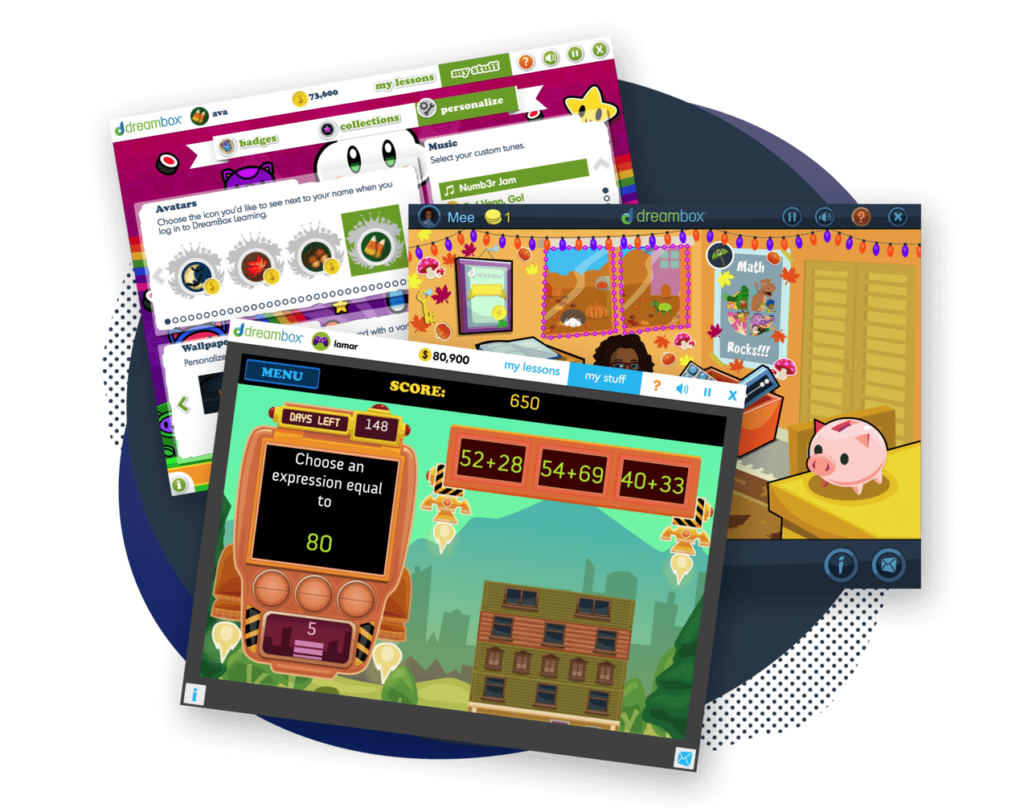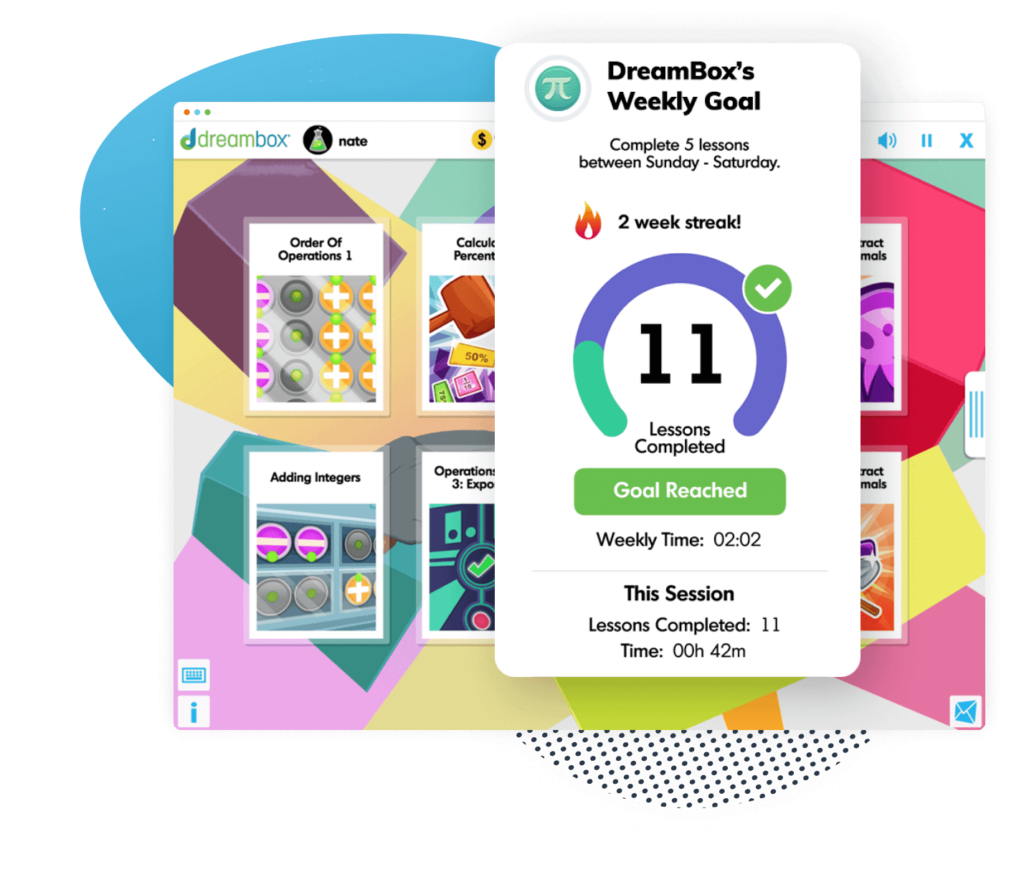How to Prepare for 3rd Grade
Prepare your child for third grade with these tips across key subjects!

Author
Katie Wickliff
Published:
Oct 2024

Key takeaways
- • In 3rd grade, children learn to think more abstractly
- • Reading comprehension becomes a big focus in 3rd grade
- • Parents can help their child prepare for 3rd grade through fun math and reading activities
By the time kids reach 3rd grade, they’ve spent two years learning basic reading and math skills. Third grade is a crucial year where students build upon prior knowledge, learning to solve more complex problems and using their reading skills to focus on deeper comprehension. Additionally, many 3rd graders also take standardized tests for the first time.
Third grade is also an important year for social-emotional development, as kids begin to navigate more complex social situations and interactions. As a parent, you might be wondering how you can help support your child during this important time. Though it may feel daunting, preparing for 3rd grade doesn’t have to be stressful.
As a former 3rd grade teacher and mother of two, I’ve outlined some of the main skills 3rd graders need and ways you can help support your child at home. Since third-grade is the first year many students take standardized tests, I’ve also included the names of each state’s tests. Let’s get started!
Table of contents
Reading Skills
Reading is a big focus in 3rd grade. Children begin to shift from learning to read to “reading to learn”. Because of this, they’ll need to focus on building their vocabulary and reading fluency. In 3rd grade, children will:
- Read and understand a variety of genres like fables, fairytales, myths, and poems from different cultures and identify the moral or message of the story.
- Answer questions about the “who, what, where, when, why, and how” of a story.
- Read independently and in groups, sharing ideas about the text with their classmates.
- Look up information in a nonfiction text using the glossary or index.
- Identify terms such as character, narrator, chapter, paragraph, etc.
Over the summer, you can:
- Encourage daily reading. Reading is essential for success in all subject areas.
- Read aloud to your child and encourage independent reading.
- Check out the local library’s summer reading program, visit local bookstores, and listen to audiobooks on car rides.
- Encourage your child to take the perspective of others by asking questions while reading such as “I wonder why that character acted that way?” or “How do you think the narrator felt when that happened?”
Turn math into playtime with DreamBox Math
DREAMBOX MATH
Get started for FREE today!

Writing Skills
Writing in 3rd grade is fun and challenging! Students are at a great age to learn so many different writing styles and really develop as writers. I loved teaching writing because of the remarkable progress I would see students make throughout the year. In 3rd grade writing, children will:
- Write a story with a clear beginning, middle, and end.
- Write in paragraph form using transitions: first, second, and third.
- Collect information about a topic and summarize the information in their writing.
- Write with proper punctuation, capitalization, and grammar.
Over the summer, you can:
- Encourage your child to write postcards, letters, and emails to friends and family.
- Write in a parent-child journal. My 3rd grade daughter and I have this one and love it!
- Create a summer scrapbook and have your child write the captions.
- Enlist your child to help write your grocery and to-do lists
Math Skills
In 3rd grade math, children will build upon their knowledge of addition and subtraction, solve more complex word problems and apply abstract thinking more often. They’ll dive deeper into measurement and estimation. Additionally, 3rd graders will:
- Learn multiplication and division within 100
- Understand how multiplication and division are related
- Tell time (to the minute) on an analog clock
- Create bar graphs and interpret data
- Calculate area and perimeter
- Show and compare fractions on a number line
Over the summer, you can:
- Review addition and subtraction facts. Having a solid grasp of addition and subtraction will make learning multiplication and division easier.
- Introduce your child to fractions. Cooking and baking with your child and letting them measure ingredients is a fun way to begin understanding fractions.
- Conduct a family survey and plot the answers on a bar graph. Have your child color the graph using their favorite markers or colored pencils.
- Play math games. Check out Dreambox for fun math skills practice.
- Heading to the beach? Collect seashells, group, and sort them.
- Reinforce place value knowledge by using LEGOs to show hundreds, tens, and ones.

The math program that drives results
Get started today!
DreamBox adapts to your child’s level and learning needs, ensuring they are appropriately challenged and get confidence-building wins.
3rd Grade Standardized Testing
Depending on where you live, your 3rd grader may take standardized tests for the first time. As a teacher and tutor, I was often asked by parents whether they should help their children prepare for standardized testing. The truth is, the best way to help your child prepare for these tests is by ensuring they get plenty of sleep and eat a nutritious breakfast.
Additionally, I advise my students (and my own children) to carefully read each question before attempting to answer it, and not to worry if they are unsure of an answer— they should make their best guess and move on. While standardized testing is an important tool to measure a student’s understanding of a given subject, it is only one of the many tools available.
Standardized Tests by State
| State | Test Name |
|---|---|
|
Alabama
|
Scantron Performance Test
|
|
Alaska
|
Performance Evaluation for Alaska’s Schools (PEAKS)
|
|
Arizona
|
AZMerit Exam
|
|
Arkansas
|
ACT Aspire Test
|
|
California
|
Smarter Balanced Test
|
|
Colorado
|
Colorado Measures of Academic Success (CMAS)
|
|
Connecticut
|
Smarter Balanced test
|
|
Delaware
|
Smarter Balanced test
|
|
District of Columbia
|
Partnership for Assessment for Readiness for College and Careers (PARCC)
|
|
Florida
|
Florida Standards Assessments (FSA)
|
|
Georgia
|
Georgia Milestones Assessment
|
|
Hawaii
|
Smarter Balanced test
|
|
Idaho
|
Smarter Balanced test
|
|
Illinois
|
Illinois Assessment of Readiness (IAR)
|
|
Indiana
|
ILEARN
|
|
Iowa
|
Iowa Statewide Assessment of Student Progress (ISASP)
|
|
Kansas
|
Kansas Assessment Program
|
|
Kentucky
|
Kentucky Performance Rating of Educational Progress (K-PREP)
|
|
Louisiana
|
Louisiana Educational Assessment Program (LEAP)
|
|
Maine
|
Maine Educational Assessment (MEA)
|
|
Maryland
|
Maryland Comprehensive Educational Program (MCAP)
|
|
Massachusetts
|
Massachusetts Comprehensive Assessment System (MCAS)
|
|
Michigan
|
Michigan Student Test of Educational Progress (M-STEP)
|
|
Minnesota
|
Minnesota Comprehensive Assessments (MCA)
|
|
Mississippi
|
Mississippi Academic Assessment Program (MAAP)
|
|
Missouri
|
Missouri Assessment Program (MAP)
|
|
Montana
|
Smarter Balanced test
|
|
Nebraska
|
Nebraska Student-Centered Assessment System (NSCAS)
|
|
Nevada
|
Smarter Balanced test
|
|
New Hampshire
|
New Hampshire Statewide Assessment System (NHSAS)
|
|
New Jersey
|
Partnership for Assessment for Readiness for College and Careers (PARCC) or New Jersey Student Learning Assessments (NJSLA)
|
|
New Mexico
|
Partnership for Assessment for Readiness for College and Careers (PARCC) or New Mexico Measures of Student Success and Achievement
|
|
New York
|
New York State Assessments (NYSA)
|
|
North Carolina
|
North Carolina End-Of-Grade Tests (EOG)
|
|
North Dakota
|
North Dakota State Assessment (NDSA)
|
|
Ohio
|
Ohio Achievement Assessment (OAA)
|
|
Oklahoma
|
Oklahoma School Testing Program (OSTP)
|
|
Oregon
|
Smarter Balanced test
|
|
Pennsylvania
|
Pennsylvania System of School Assessment (PSSA)
|
|
Rhode Island
|
Rhode Island Comprehensive Assessment System (RICAS)
|
|
South Carolina
|
SCReady
|
|
South Dakota
|
Smarter Balanced test
|
|
Tennessee
|
Tennessee Comprehensive Assessment Program (TCAP)
|
|
Texas
|
Texas Assessments of Academic Readiness (STAAR)
|
|
Utah
|
Readiness Improvement Success Empowerment (RISE)
|
|
Vermont
|
Smarter Balanced test
|
|
Virginia
|
Standards of Learning (SOL)
|
|
Washington
|
Smarter Balanced
|
|
West Virginia
|
West Virginia General Summative Assessment (WVGSA)
|
|
Wisconsin
|
Wisconsin Forward
|
|
Wyoming
|
Wyoming Test of Proficiency and Progress (WY-TOPP)
|
FAQs about preparing for 3rd grade
As a teacher and tutor, I often get asked by parents whether they should help their children prepare for standardized testing. The truth is, the best way to help your child prepare for these tests is by ensuring they get plenty of sleep and eat a nutritious breakfast.
Take at home math practice to the next level
Empowering parents and educators to make math practice more impactful. Plus, your kids will love it.


